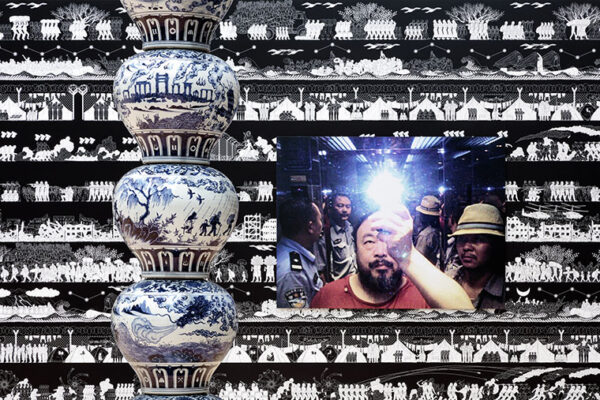In July 2021, China will mark the 100th anniversary of the founding of the Communist Party. In the runup to celebrations, Variety magazine reports that the powerful National Film Administration is requiring all 5,000 members of China’s National Alliance of Arthouse Cinemas to screen at least two propaganda films each week.

“The Chinese Communist Party has long recognized the importance of cinematic propaganda,” said Zhao Ma, associate professor of modern Chinese history and culture in Arts & Sciences at Washington University in St. Louis. “Film possesses immense power to transmit didactic messages by arousing emotions like anger and compassion. It educates and excites. It’s an indispensable instrument for facilitating the party’s ‘emotion work.’”
Ma explained that, since the end of the Cold War, the party has promoted three core nationalist themes: China’s proud history as the world’s oldest continuous civilization; the “century of humiliation” wrought by Western colonial and imperial powers; and the party’s role in restoring national honor. At the same time, China has grown to become the world’s second-largest film market, after North America, with revenues of more than $9.2 billion in 2019.
“The size of the market and the sheer volume of viewers attract international investment as well as government scrutiny,” Ma said. “Cinematic propaganda is conducted both reactively and proactively. The propaganda authority censors politically incorrect films and censures filmmakers after films are released; and it also invests heavily in the making of ‘main melody’ films that promote state-sanctioned nationalist ideals and socialist values.
“The new mandate is just the party’s most recent attempt to turn movie houses into political classrooms,” Ma added.

The nationalist template
Of the first 12 films approved for propaganda screenings this month, four center on World War II (known in China as the Anti-Japanese War). Five depict the Civil War between communists and nationalists. The remaining three highlight the Korean War (a.k.a. the War to Resist U.S. Aggression and Aid Korea).
“These films reflect the nationalist template for remembering China’s modern history and the history of the Chinese Communist Party,” Ma explained. “At the outbreak of WWII, China is depicted as a victim of foreign invasion and domestic repression. Then, as Communist Party leadership united the country, China successfully defeated its enemies and washed off the ‘century of humiliation.’”

Ma, who is currently writing a book about Chinese propaganda during the Korean campaign, noted that beginning in the late 1970s, as China developed closer ties with the United States and South Korea — and as relations with North Korea cooled — the Korean War was relatively forgotten. That began to change during the Trump administration, as the U.S.-China relationship deteriorated.
“Clearly, Beijing intends to invoke the Korean War memory to criticize Washington’s unilateralism and America-first foreign policy,” Ma said. “These films argue that, when America attempted to disrupt and destroy the world order, China fought to preserve the peace in East Asia. The Korean War becomes a prelude to China’s current efforts to counter American arrogance and aggression.”
But notably, of the 12 promoted films, eight are “red classics” produced in the Mao era and one, “Landmine Warfare,” is a new release. The remaining three — “Hundred Regiments Offensive” (2015), “Battle of Xiangjiang River” (2016) and “The Sacrifice” (2020) — fared poorly with Chinese audiences, earning ratings of just 5.3, 5.3 and 6.5 (out of 10) on the film review website Douban.
“Poor reviews call the effectiveness of cinematic propaganda into question,” Ma concluded. “The Chinese party-state has enlisted major celebrities, invoked love stories and red nostalgia, and used hi-tech visual/audio affects to dramatize war, sensationalize nationalism and appeal to millennials.
“But it may find that political jargon and ideological mandates just don’t sit well with 21st-century moviegoers.”



